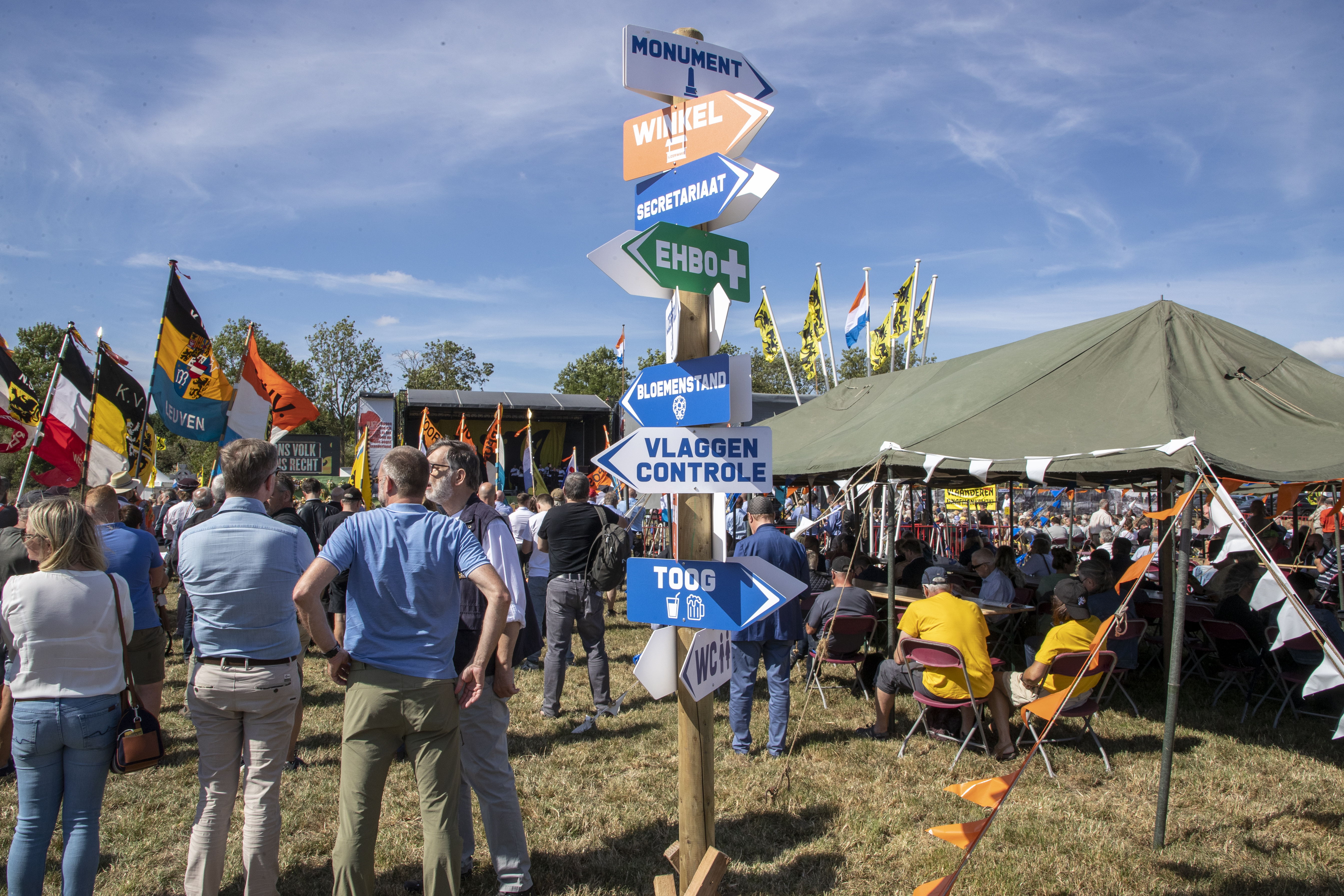IJzerwake: Right-wing sympathisers' controversial annual gathering

At the end of August, Ypres will again be the scene of the annual IJzerwake, a weekend gathering of far-right sympathisers. The event began as a protest against the IJzerbedevaart, a yearly pilgrimage to commemorate the fallen Flemish soldiers of the First World War, after it changed its message from "Never Again War, Self-Government and God's Peace" to "Peace, Freedom and Tolerance".
To understand how the pilgrimage came about, we must go back to 1920, just after the First World War. It was then that the IJzer Pilgrimage was born, which takes place every year on the last day of August. The first pilgrimages went to places where a "beloved" Flemish person was buried. When the IJzer Tower was built in 1928 and inaugurated in 1930, the pilgrimage continued to this peace monument in the West Flemish town of Diksmuide.
Flemish Movement
Between 1930 and 1937, the remains of nine war heroes were buried in the tower's crypt. It was also during this period that the pilgrimage became one of the main manifestations of the Flemish Movement, an association dedicated to the cause of an autonomous Flanders.
The commemorations continued after the Second World War. From the 1980s, on the eve of the event, neo-Nazis from all over Europe came to Diksmuide. To prevent radicalisation, the pilgrimage committee made the event accessible to a wider audience, including changing the slogan to "Peace, Freedom and Tolerance".
The right wing of the organisation described this new approach as "grave robbing" and in 1996 decided to break with the organisation for good.
Historical pardon
At the pilgrimage in August 2000, Frans-Jos Verdoodt, a Flemish historian and member of the committee, took the floor to explicitly condemn the collaboration of a significant part of Flemish nationalism with Nazi Germany between 1940 and 1944 and to ask for a "historical pardon" in the name of the Flemish Movement.
The reaction of the radical wing was to set up the IJzerwake in 2003. While the original pilgrimage attracted MPs from all Flemish parties, the organisers of the IJzerwake mainly invited radical figures. Since 2013, the pilgrimage has taken place on 11 November, the commemoration of the armistice that marked the end of the First World War, but the IJzerwake still takes place on the last weekend of August.
Peace charter
Like last year, the organisers of the IJzerwake are causing a stir in Ypres, where the two-day event will take place. In 2022, the city council banned Frontnacht, a festival of far-right groups that was to take place on the eve of the IJzerwake. On Monday, the same council will discuss the participation of Dries Van Langenhove, founder of the far-right Flemish youth movement Schild & Vrienden, as a guest speaker.
After last year's cancellation of Frontnacht, a peace charter was drawn up containing anti-discrimination rules and other conditions for events taking place in Ypres. The Ypres Peace Collective believes Van Langenhove's presence at the IJzerwake violates this charter.
The camaraderie evening, an evening of singing on the eve of the IJzerwake, is also under review. "Announcing an event without permission and how they communicate it does not help build trust," Ypres mayor Emmily Talpe (Open VLD) told VRT NWS. "We wouldn't tolerate that from other organisations either."
#FlandersNewsService | © BELGA PHOTO NICOLAS MAETERLINCK
Related news

